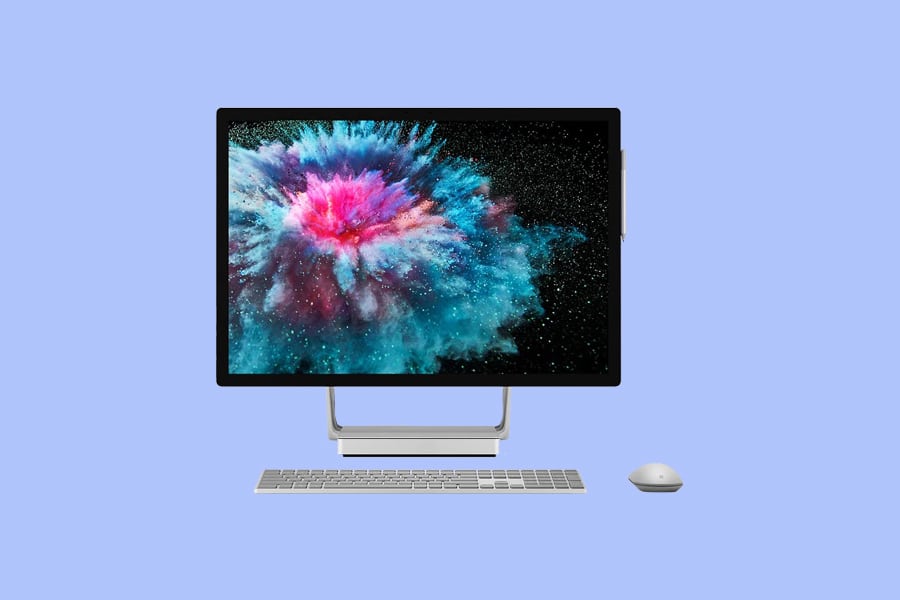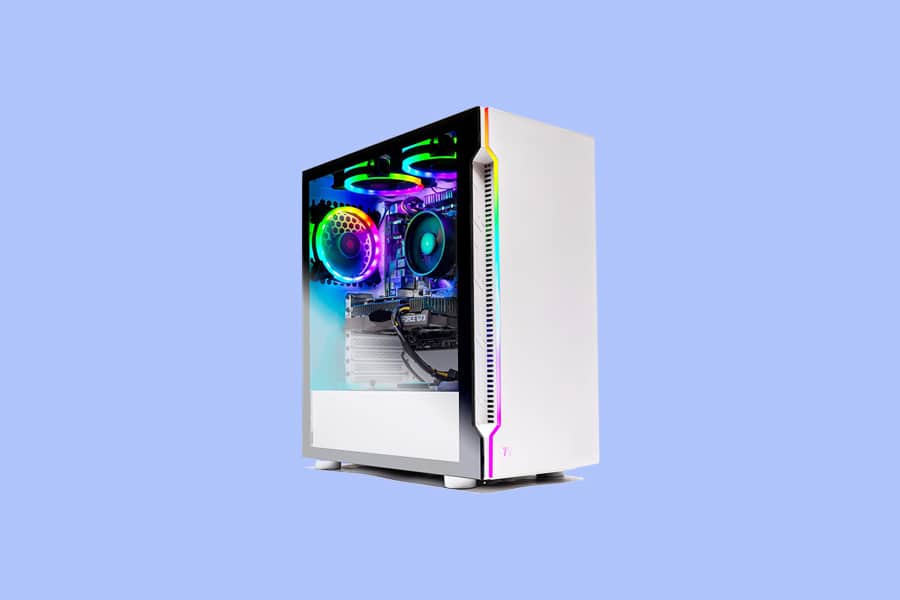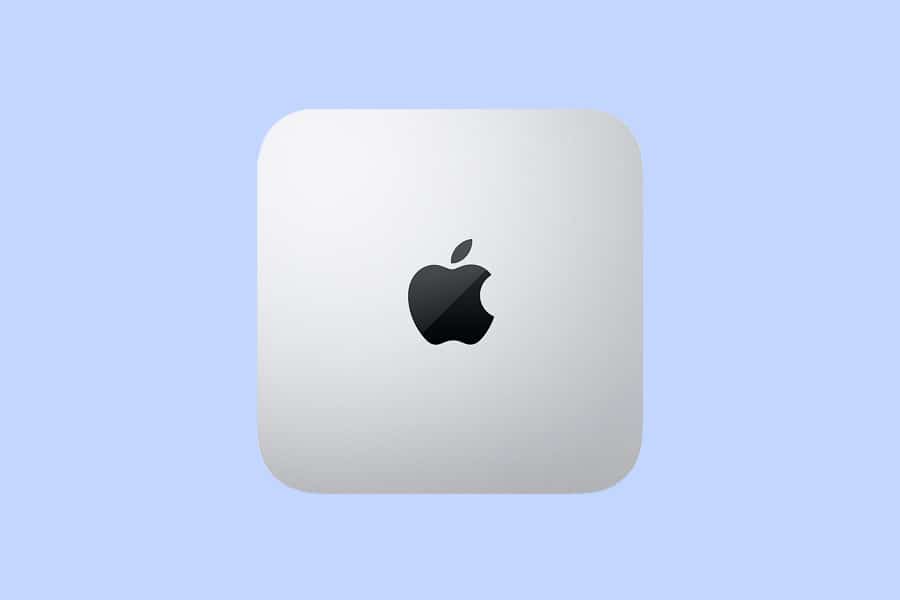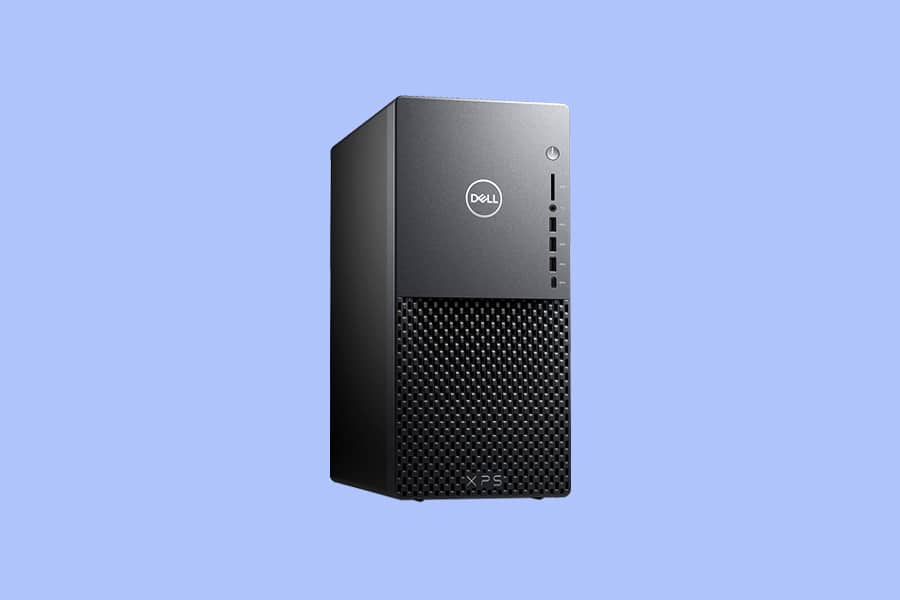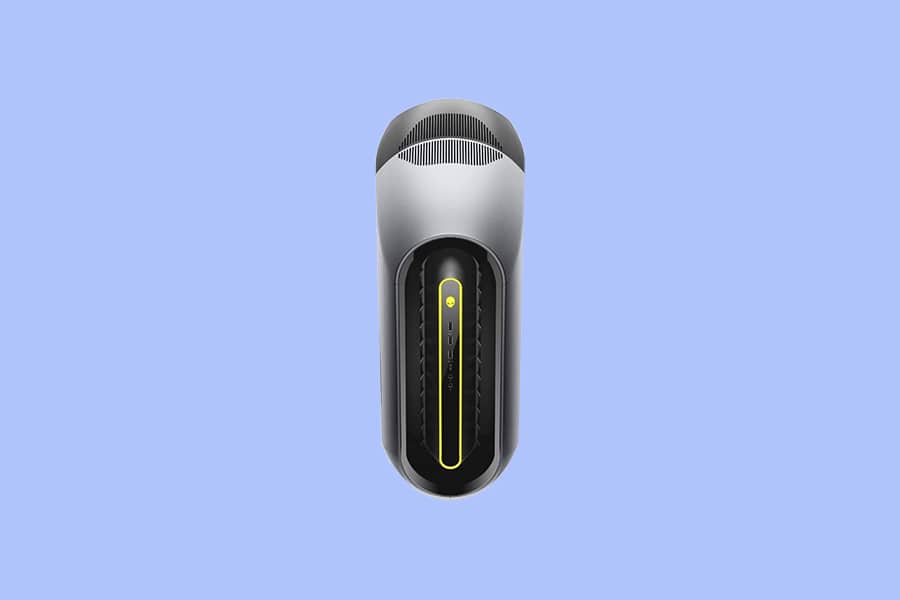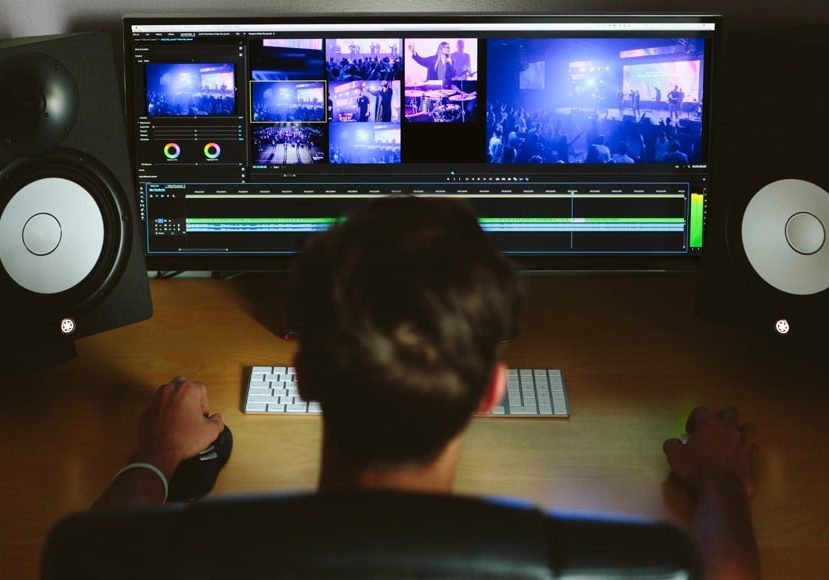
Best Desktop Computer for Video Editing in 2023 (PC and Mac)
Choosing the right Mac or PC for video editing can be tricky. This guide reveals the best desktops in 2021, the specs you need and what computers YouTubers use.
Choosing a new desktop computer for video editing is a tricky process.
Video editing computers are usually expensive, and there are plenty of PC and Mac models to choose from.
You’ll need a lot of processing power, a powerful graphics card, plenty of fast RAM and a lot of storage space – ideally SSD.
(Although using a proxy workflow allows you to use less powerful computers, you’ll still struggle to render and export large files.)
The latest laptops can handle complex video editing tasks, but you’ll get much better value for money with a desktop video editing computer.
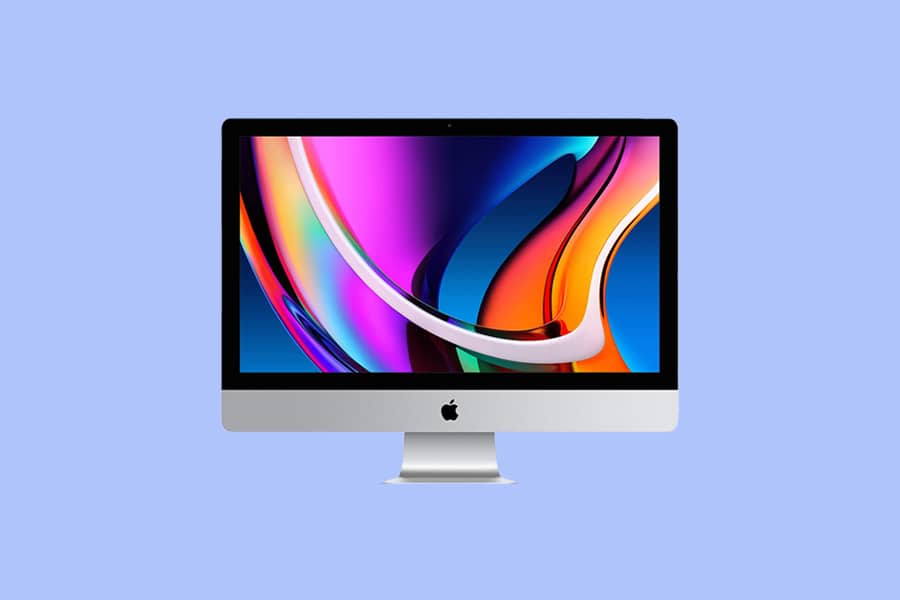
Best all-in-one desktop computer for video editing. Powerful, reliable and stylish with a stunning 5K screen.
Monitors are also an important consideration, where bigger is better when it comes to multi-layer video editing and lengthy timelines.
(Most of the best video editing computers come with monitors, pre-calibrated for optimal colour accuracy.)
In this guide, we’ve included some powerful gaming PCs too, and you’ll also learn which specs your PC will need to run the latest video editing software.
Let’s take a closer look at the recommendations.
Table of Contents
What is the Best Desktop Computer for Video Editing in 2023?
| Image | Product | Features | |
|---|---|---|---|
 | Apple iMac 27"OUR #1 CHOICE |
| View Price → |
 | Microsoft Surface Studio 2BEST FOR WINDOWS USERS |
| View Price → |
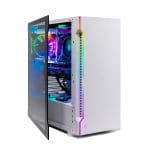 | Skytech Archangel Gaming ComputerBEST ALTERNATIVE |
| View Price → |
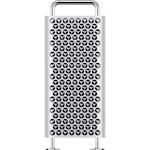 | Apple Mac ProHIGHEST PERFORMANCE |
| View Price → |
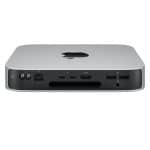 | Apple Mac MiniBEST BUDGET OPTION |
| View Price → |
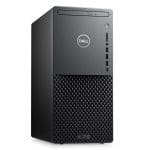 | Dell XPS 8940 |
| View Price → |
 | Alienware Aurora Ryzen |
| View Price → |
1. Apple iMac 27″
- Excellent configuration options
- Enhanced internals
- Gorgeous 5K display
- Great-looking
- Only two Thunderbolt ports
- Yet to have M1 chip
A long-standing favourite among video editors, the Apple iMac 27″ blends ergonomic design with a powerful processor to deliver impressive performance while editing footage.
It’s a fantastic alternative to the now discontinued iMac Pro, with the large 27″ display and AMD Radeon Pro 5700 XT capable of pumping out high-resolution video footage without any issues.
There’s the option for matte “nano-texture” or glossy 5K display, and while there’s no touchscreen available here, it delivers crystal clear images with sharp colours and detail.
While the design of the Apple iMac 27″ hasn’t changed much since it was first launched in 2015, it’s still sleek enough not to appear too bulky on your desk, and the black bezels help the images pop out of the screen.
In terms of processing power, it might be lacking Apple’s signature M1 chip, but the 10th generation Intel i9 processor can still handle plenty of intensive video rendering tasks without overheating. It’s also our pick of the best computer for graphics design.
Videography enthusiasts looking for a great all-in-one computer setup with plenty of power under the hood and who can live without the M1 chip will be impressed with the performance of the Apple iMac 27″.
If you don’t have the budget to go for the Apple iMac 27″, the newer iMac 24″ offers excellent value for money, sacrificing the larger screen size but adding the performance edge you’ll get from the M1 chip – check out the 24″ model here.
All in all the iMac 27″ is still our pick of the best video editing computer for most people.
2. Microsoft Surface Studio 2
- Excellent design for desktop and drawing board
- Powerful graphics performance
- Touch-sensitive display
- Bright display and contrast ratio
- Expensive
- Port placement could be improved
Microsoft’s entry in the high-budget all-in-one desktop computer category, the Microsoft Surface Studio 2, is a feature-rich computer with excellent performance and image reproduction, displayed through a 28″ touch-sensitive display.
The flexible hinge allows users to move it up to use as a regular display or use it as a drawing board, with the latter mode improved through Microsoft’s exceptional pen support.
The ability to switch colour profiles from sRGB to DCI-P3 is beneficial for those who want to use their computer for high-end video editing, allowing for far more accurate colour and saturation to ensure the best possible results.
It comes with an Nvidia GeForce GTX 1070 8GB GDDR5 graphics card, making the Microsoft Surface Studio 2 a solid choice for videographers who also enjoy gaming and are looking for a PC that is optimised for both purposes.
The memory capacity and performance of the Microsoft Surface Studio 2 is fast and lag-free, using a 1TB SSD with either 14GB or 32GB RAM, depending on which package you opt for.
Sound quality is also surprisingly good for built-in speakers, with eight speakers in total built into the display, and an additional two speakers in the base to put out Dolby Audio Premium sound.
In addition to the keyboard and mouse, the Microsoft Surface Studio 2 comes with Microsoft’s Suprace Pen, featuring wireless connectivity, a built-in eraser, and tilt support, with excellent sensitivity making it a dream to use.
A great alternative for those who prefer Windows-based computers over Macs, the Microsoft Surface Studio 2 may be pricey, but it delivers exceptional performance capable of meeting the most demanding video editing tasks.
3. Skytech Archangel Gaming Computer
- Solid performance for gaming and video editing
- Attractive-looking PC case
- Great cable management
- Reasonable price
- Lacks front USB ports and flash card reader
- Underpowered for the latest games
While some videographers prefer to go straight to a dedicated video editing computer, plenty of solid gaming PCs are available that work perfectly well as a general video editing PC.
The Skytech Archangel Gaming Computer is an excellent pre-built PC that delivers a fluid gaming experience while delivering the goods when running software such as Adobe Premiere Pro.
It comes with a six-core AMD Ryzen 2600X processor paired with an Nvidia GeForce GTX 1050 Ti graphics card with 4GB memory, as well as 8GB DDR4 RAM and a 1TB hard drive.
While it won’t deliver the same level of performance as its high-end counterparts, the Skytech Archangel Gaming Computer can handle 4K ably enough, particularly if you opt to spend a little extra to upgrade the computer’s RAM.
It’s all housed in a sturdy chassis constructed from steel and tempered glass, with the interior cooled by a trio of LED-lit fans for an all-around pleasing aesthetic.
There are plenty of ports available to use, with a pair of USB 3.1 Type-A ports on the mid-tower’s front edge, and separate headphone and microphone jacks, along with additional USB ports, HDMI, and ethernet jacks located at the rear.
Additional ports on the graphics card, including one HDMI and three DisplayPort video-out connectors, allow for a multi-monitor setup, which is a must for video editing.
Overall, the Skytech Archangel Gaming Computer offers great value for money for editing videos on a budget, while also serving as a competent gaming PC.
4. Apple Mac Pro
- Exceptionally well designed
- Perfect for high-end video editing
- Innovative features
- Handles 8K with no issues
- Dark colorway looks amazing
- Very expensive
- Overkill for most users
Apple’s Mac Pro is by far the best video editing computer on the market, although its price is well above its competitors, restricting its use mainly to high-end professionals who need the very best performance.
This is a top-of-the-line video editing workstation replete with useful features, with processors capable of being pushed to the absolute limit, including multiple streams of 8K at full resolution.
This exceptional performance comes thanks to the Mac Pro’s Intel Xeon W processor from 8 to 28 cores, along with the option of up to 1.5TB of RAM.
High-end editors have the option to include an Afterburner card capable of processing up to 6.3 billion pixels per second, delivering up to 23 streams in 4K.
Using two graphics cards enhances performance even further, bypassing the main CPU to speed up processing so that the CPU can concentrate on other functions.
Everything comes housed in a solid and durable metal frame, with the cheese grater-style grill allowing for optimal airflow to deliver extremely quiet performance.
Apple’s Mac Pro is their most powerful computer for video editing, and while its high price puts it out of reach of most, for those with the cash, it delivers unbeatable performance.
5. Apple Mac Mini
- Fast performance
- More affordable than before
- M1 hardware
- Includes WiFi
- Poor speaker
- Doesn’t support external GPUs
If you don’t have the bottomless bank account required to afford the Mac Pro, but still want an Apple computer capable of delivering great video editing performance, the Mac Mini is well worth considering.
The Mac Mini comes complete with the latest M1 hardware, making it more than adequate for rendering your Final Cut Pro projects without any performance issues.
While the memory is capped at 16GB and you don’t have the option to use external graphics cards, the out-of-the-box capabilities are fantastic for the price point.
The Mac Mini itself, as the name suggests, is attractive and compact, ideally suited for smaller desks and offices that lack the space for larger setups.
Port options are extensive, including HDMI and Thunderbolt inputs, allowing for two monitor setups at 4K and 6K resolution respectively.
The Mac Mini doesn’t come with a mouse, keyboard, or monitor at the standard price, however, so this is something to be aware of when budgeting for your video editing computer.
Apple’s Mac Mini M1 Chip model is arguably the best value for money video editing computer, delivering high performance and excellent results despite lower specifications.
6. Dell XPS 8940
- Good value for money
- Small and neat design
- Plenty of ports available
- Powerful high-end build
- Basic mouse and keyboard included
- The best configuration is expensive
Dell’s XPS 8940 computer delivers another great budget option for videographers who want a computer that gives them options for gaming in its package.
Like the Mac Mini, the Dell XPS 8940 is a compact computer with a solidly built chassis, sporting a broad selection of ports on both front and back for comprehensive connectivity.
One of the big advantages comes thanks to the range of upgradable options you can work with, from customising the GPU and CPU or adding more memory to including a Blu-ray drive.
It goes without saying that these upgrades can significantly increase the overall costs of the computer, but with such a degree of iterations available, you can tailor these upgrades to those you need the most.
For example, opt for a setup using an Intel Core i7-19799k CPU, an Nvidia GeForce RTX-3070 GPU, and 32GB RAM, and you’ll get all the performance you need for video editing without breaking the bank.
The ease with which users can upgrade the Dell XPS 8940 is one of its main selling points, so if you find the performance is underwhelming, you can increase RAM or add an additional SSD to overcome these shortcomings.
Offering great value for money and capable of running powerful video editing apps even with the basic setup, the Dell XPS 8940 is an entry-level editing computer that comes highly recommended.
7. Alienware Aurora Ryzen
- Solid all-around performance
- Plenty of customisation options
- Compact design
- Lots of ports
- Fairly expensive
- Cooling fans can be noisy
Alienware’s Aurora Ryzen is the company’s flagship gaming desktop computer that packs enough performance kick to make it ideal for use with the latest video editing tools.
While Alienware’s futuristic case designs might not be to everyone’s taste, what it houses is a fast processor and graphics card with full customisation options.
Connectivity options are plentiful, including three USB Gen1 Type-A ports, headphone and microphone jacks, and three DisplayPort video outputs.
Opt for the Ryzen 7 5800X CPU, 16GB Radeon RX 6800 XT graphics card, and 32GB memory, and the Aurora Ryzen will be more than capable of running multiple 4K streams through your editing software of choice.
Cheaper configurations will also perform well, with perhaps the main criticism for the Alienware Aurora Ryzen coming from the computer’s fan, which is notoriously noisy when compared to its competitors.
Since this is Alienware, users can expect a raft of performance and overclocking enhancement options, which combined with the customisable upgrades makes this a versatile computer for videographers who like to tinker with their setup.
While the Alienware Aurora Ryzen isn’t cheap, especially when full specs are chosen, it’s a flexible computer for video editing which can be easily upgraded.
What Specs do you Need for Video Editing?
Before deciding which computer is best for your video editing requirements, you’ll need to make sure it covers all the basics and is compatible with the resolution and quality of your camera.
There are several aspects to consider when choosing a computer for video editing, which we’ll cover in more detail now.
- Processor/CPU
The processing power your computer has will in part determine the level of performance you’ll get, so you should be aiming to get one with a bare minimum of 4 processor cores.
Multi-core Intel processors such as the i5, i7, and i9 are all worth considering (with the i9 being the best of these), with other manufacturers such as AMD Ryzen offering comparable desktop processors that are up to the task.
- Memory/RAM
The amount of RAM required for video editing varies depending on the resolution of video you’re working with, but as a rule of thumb you’ll need a minimum of 16GB RAM for 1080p, and 32GB as a baseline for 4K or 6K editing.
If you’re anticipating a complicated workflow with multiple video streams at full resolution, 64GB RAM is the recommended amount you should be using.
- Graphics card/GPU
The optimal graphics card for video editing depends on the software you are using, so the first thing to do is check the specification requirements for your software of choice.
For example, if you’re using Adobe Premiere Pro, the minimum GPU requirements include at least 4GB or VRAM, with 8GB VRAM or more offering the best performance.
Final Cut Pro X recommends a baseline of 256MB of VRAM, although if you’re working with 4K footage, you’ll want to upgrade this to at least 1GB.
- SSDs
Using solid-state drives (SSDs) in your computer is another way to improve the speed and performance while editing your videos.
SSDs are more expensive than traditional hard drives, particularly when opting for high storage capacity, but they deliver much faster transfer speeds.
Editing 4K material is best when using a RAID 5, since this can transfer up to speeds of 420MB/s, although the price point may be off-putting for non-professionals.
- Storage
Traditional hard drives can be handy for archiving completed video projects and storing clips for transfer to your SSD when you’re ready to begin editing.
While these can be slow to access if you have your video clips here for use in the editing process, they are reliable and can be purchased with plenty of storage space for a relatively cheap price.
- Monitors
Finally, you’ll need a good monitor to make the most of your high-quality footage, with a decent screen size capable of displaying video at the native resolution.
Great quality 4K monitors have come down in price considerably since they were first launched, with mid-range monitors from Dell, BenQ, and Acer, among others, delivering bright and detailed images.
High-end monitors are also available for optimal performance editing 6K or 8K video, although you can expect the required budget for such monitors to increase significantly.
- Proxies
If you’re looking for an efficient way to edit videos without the need for spending huge sums of money on a workstation, it’s worth considering using proxies.
These allow you to use cloud services to access powerful workstations streaming the screen to your computer.
While proxies are often primarily aimed at gamers, they are just as effective when used for video editing tools and software.
What Computer do YouTubers use for Editing?
If you’re shopping for the best computer for video editing, chances are, you’re interested in uploading your creations to YouTube.
Although any computer (or tablet or smartphone) can conceivably edit videos for YouTube, the models recommended in the above roundup will make the process smoother, faster and more enjoyable overall.
It’s worth noting that some YouTubers choose to build their own computers for video or photo editing, but since this is a complex process with plenty of variables, we’ve chosen to highlight all-in-one computers.
Here’s what video editing PC or Mac some famous YouTubers use here in 2023:
- What computer does Peter McKinnon use?:
When Peter McKinnon is on the move, he uses an Apple 15″ MacBook Pro for his editing and video processing work.
At home, his setup includes an Apple 27″ iMac Pro in his main office, storing everything on a LaCie 6big Thunderbolt 3 6-bay desktop RAID.
- What computer does Marques Brownlee use?:
For editing his videos, Marques Brownlee uses a combination of MacBook Pro and iMac Pro, moving away from his PC due to the impressive rendering speed delivered by Apple computers.
- What computer does Evan Ranft use?:
The 21″ M1 iMac is Evan Ranft’s computer of choice for video editing, allowing him to work with high-quality 4K files at full specifications.
His M1 is upgraded with additional storage through a 5TB Lacie drive to allow for rapid transfers to the computer.
- What computer does Thomas Heaton use?:
Thomas Heaton uses an iMac with a BenQ SW271 Monitor for optimal performance, storing his media on a Sandisk SSD drive to allow for seamless switching between laptop and desktop.
What Video Editing Software do YouTubers use?
Choosing the best software to edit your videos can be tricky since the most popular programs are rather similar in user interface and features.
While there’s no ‘wrong’ answer when choosing a video editing software or app, your choice will be largely dictated by your platform (Mac, PC, iOS, Android), budget and competence – most programs have a steep learning curve, after all.
Here’s what software some famous YouTubers use to edit their videos in 2023:
- What software does Peter McKinnon use?:
Peter McKinnon uses Adobe Premiere Pro to handle his editing workflow.
- What software does Marques Brownlee use?:
When editing his videos and animations, Marques Brownlee uses Final Cut Pro X on his Mac.
- What software does Evan Ranft use?:
Adobe Premiere Pro is Evan Ranft’s software of choice for editing his YouTube videos, with Lightroom his go-to software for photography edits.
- What software does Thomas Heaton use?:
For editing his video footage, Thomas Heaton uses Adobe Premiere Pro, while for image processing and editing, he uses Adobe Photoshop and Lightroom.
Video Editing Computers FAQs
What is the best CPU for video editing in 2021?
It goes without saying that the more power you have for video editing, the better, and the current best-performing CPU for video editing is the Intel Core i9 12900K.
Other recommended CPUs include the Intel Core i7-10700K, the AMD Ryzen 5 3600X 6-Core, and the AMD YD195XA8AEWOF Ryzen Desktop Processor.
Is a laptop or desktop better for video editing?
Desktop computers are typically better than laptops for editing, delivering significantly more editing power on higher-end PCs.
That said, if you need to edit on the move, you can invest in a great laptop for this purpose, although you’ll have to sacrifice some power and screen size to do so.
Can a gaming computer be used for video editing?
A high-end gaming computer is capable of delivering solid performance when used for video editing since games are graphics-heavy and have similar specification requirements.
How much RAM do I need for video editing?
The optimal capacity of RAM required for video editing is 32GB, so aim to pick up a computer that matches this specification..
This will allow you to have multiple programs running at the same time, without worrying about losing performance and speed when using your video editing software.
Final Words
The best video editing computer needs a lot of power, and lots of power usually means a high price tag.
However, if you’re on a tight budget and can live with slower editing and exports, a proxy-based video editing workflow can save you a lot of money in buying a less powerful computer.
Proxies can, of course, be used with any of the video editing PC and Mac models recommended above.
With more RAM and faster CPUs, you’ll be able to carry out more tasks concurrently, and export times will be vastly reduced.
You’ll also get the most out of professional video editing tools and software by using the best computer for video editing that you can afford.
I hope this article helps you make the right choice. Leave any comments or questions below, and we look forward to seeing your creations on YouTube!





